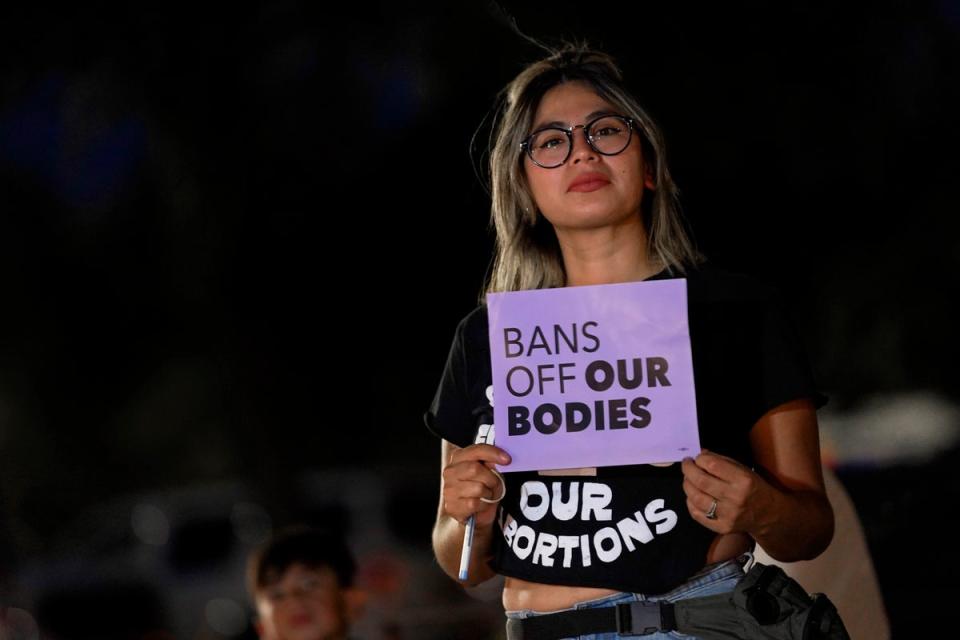Inside the Arizona Supreme Court battle over an 1864 abortion law

Whether or not the state of Arizona resurrects a 158-year-old law that bans nearly all abortions is in the hands of the state’s Supreme Court.
The years-long battle, which emerged after the Supreme Court overturned Roe v Wade in June 2022, is to determine whether or not the state follows an 1864 law that bans nearly all abortions or a 2022 law that bans abortions after 15 weeks.
On Tuesday, justices spent an hour hearing arguments in the case Planned Parenthood Arizona v Mayes which challenges the 1864 law, first enacted by Arizona approximately 48 years before it even obtained statehood.
The Civil War era law criminalises abortions by making it punishable by two to five years in prison for anyone who performs or assists a woman in obtaining one unless it is necessary to save the woman’s life.
Six of the state’s Supreme Court justices vigorously questioned both sides on how the language set out in the 1864 law conflicted with the 2022 ruling and vice-versa.
That is the crux of the problem presented: whether or not the 2022 ruling and 1864 ruling can live in harmony due to their seemingly conflicting language.
The 1864 law, blatantly punishes anyone who performs an abortion or supplies medication at any point unless medically necessary to save the mother’s life. Though it was overridden by the landmark decision Roe v Wade in 1973, it was never amended.
However, the 2022 law only outlaws medical providers from performing an abortion after 15 weeks, unless medically necessary to save a woman’s life. It does not contain a line permitting abortion before 15 weeks.
But for anti-abortion activists, the Supreme Court’s decision in Dobbs v Jackson Women’s Health Organization meant that states would return to their pre-Roe abortion laws. They say the 2022 law’s language specifically does not repel the 1864 law “or any other applicable state law regulating or restricting abortion.”
But abortion-rights advocates say the 2022 law supersedes the 1864 law because it was created before Arizona was a US state.

On top of this, Planned Parenthood says the 1864 law removes the right to bodily autonomy and inspires “catastrophic” consequences.
“A near-total ban on abortion in our state would be catastrophic to the well-being of our communities and deeply out of touch with the will of the majority of Arizonans,” Dr Jill Gibson, the Chief Medical Officer at Planned Parenthood Arizona, said.
“The Arizona Supreme Court has the opportunity to refuse this bleak future and reject this egregious threat to reproductive health care. Our community deserves better – we deserve a right to make our own decisions about our bodies and our health.”
Justices could choose to reaffirm the Arizona Court of Appeals’ decision, which allowed the two laws to live harmoniously by enforcing the 1864 law only on non-physicians. A split 3-3 decision could also result in this.
A ruling in the case is expected to arrive early next year – likely setting the stage for the role abortion will play in the 2024 election in the swing state.
The oral arguments in Arizona come just one day after the Texas Supreme Court controversially intervened in an abortion case due to the state’s stringent laws that restricted a medically necessary procedure for a woman.

 Yahoo News
Yahoo News 
